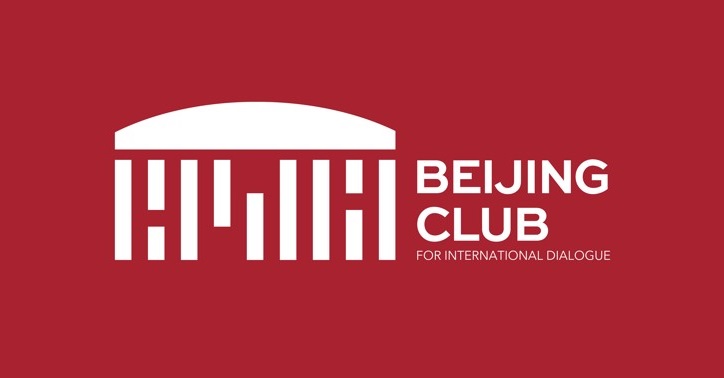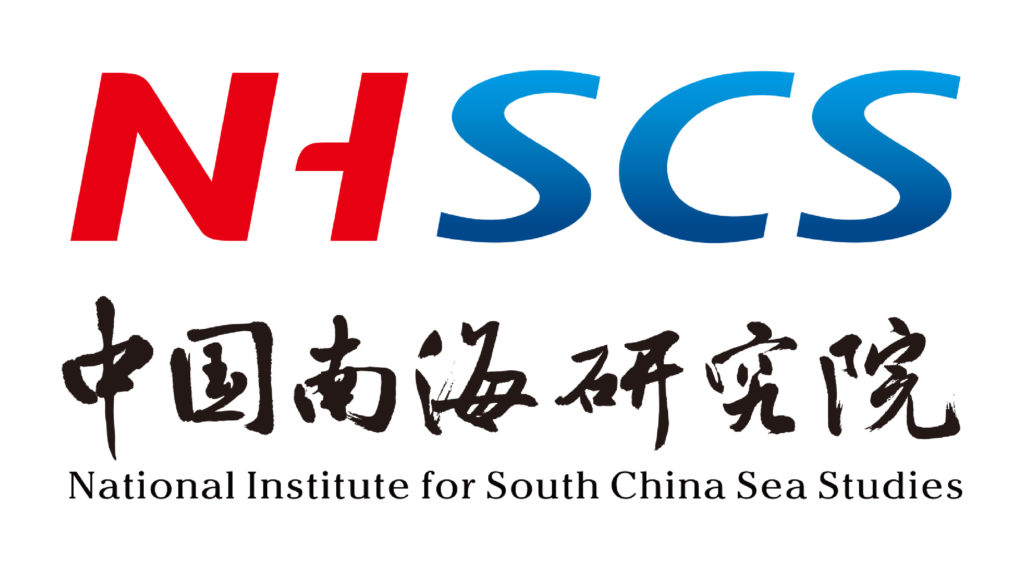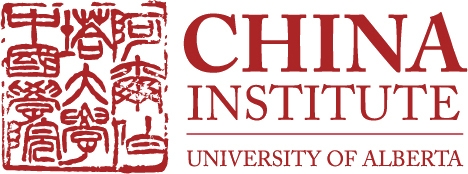Georgetown Marriott Hotel, Washington, D.C.
Metropolitan Ballroom, 2nd Floor
October 17, 2023
9:00am-2:00pm EDT
On October 17, the Institute for China-America Studies (ICAS) organized its 2023 Annual Conference. With COVID-19 thankfully more or less in the rear-view mirror, the conference was held in full, in-person format for the first time in more than four years. Dr. Hong Nong, Executive Director of ICAS, opened the conference and Dr. Wu Shicun, Chairman of ICAS’ Advisory Board, delivered the introductory remarks. In his heartfelt message, Dr. Wu spoke of the pressing need for both sides to present a forward-looking vision of ties so as to remove risks to the bilateral relationship and stabilize its long-term development. China and the United States are not fated to fall into a ‘Thucydides Trap’, and decision-makers on both sides must ensure that such a circumstance does not come to pass. Casting his own family’s experience as a typical example, Dr. Wu referred to the innumerable people-to-people ties that many Chinese share with the United States and the American people at large. Such relationships must never be decoupled, he noted, and future generations of Chinese and Americans must not pay the price of bad decisions that are taken today. Concluding, he hoped that the annual conference would throw up vibrant ideas and solutions to the many challenges being faced and articulate a new paradigm of ties that could rehabilitate and relaunch China-U.S. relations on a stable track for the next quarter century.
Dr. Wu’s introductory remarks was followed by the highlight of the conference—a keynote dialogue featuring Madam Xu Xueyuan, Deputy Chief of Mission & Minister at the Embassy of the People’s Republic of China in the United States, and Professor David Lampton, Professor Emeritus of China Studies at the School of Advanced International Studies, Johns Hopkins University. The dialogue was moderated by Professor Gordon Houlden, an ex-senior Canadian diplomat and Director Emeritus of the China Institute at the University of Alberta, Canada.
OPENING REMARKS:
KEYNOTE DIALOGUE:
ICAS was proud to host the Deputy Chief of Mission & Minister at the Embassy of the People’s Republic of China, Xu Xueyuan and David Lampton of Johns Hopkins University as our Keynote Dialogue speakers, to be moderated by Gordon Houlden of China Institute, University of Alberta.
In her prepared remarks, Madame Xu commended the recent visit of the U.S. Senate delegation to China led by Majority Leader Chuck Schumer. She noted that, fifty years ago, President Nixon had advised U.S. Congressmen and women to travel to China to obtain an unfiltered view of the country following his own groundbreaking rapprochement visit of February 1972. Madam Xu also echoed the words of President Xi Jinping given to the visiting senators, noting that Planet Earth was vast enough to accommodate the respective development paths and common prosperity of China and the U.S. and, given the high degree of integration between the Chinese and U.S. economies and their closely entwined interests, both countries stood to benefit from each other’s development. She welcomed the visits of more U.S. congressional delegations to gain a better understanding of China’s past, present and future, and hoped that the two legislatures would have more interactions, dialogues, and exchanges to increase mutual understanding and make a positive contribution to stabilizing China-U.S. relations. Professor Lampton shared Madam Xu’s concern regarding the deteriorating perception gap between the two sides, which urgently needs to be bridged. He pointedly observed that with just approximately 350 American students in China there is no way that Sino-U.S. understanding can be successfully fostered. While he did commend the easing of tensions over the past few months at the state-to-state level, Professor Lampton cautioned that process should not be confused with progress. He furthermore pointed out four issue areas where the two sides have come to distrust each other: the Russia-Ukraine war, terrorism in the Middle East and the Israel-Hamas conflict, Taiwan and the U.S.’ ‘One China policy’, and China’s modernization drive.
During the spirited discussion phase, ably moderated by Professor Houlden, Madam Xu put forth the view that the root cause of the deterioration in bilateral relations was the misperception in the U.S. of China’s long-term strategic goals. China was not seeking to displace the United States from its position as number one or from its presence in Asia. This misperception on the U.S. side was, in turn, leading to a disrespect for China’s core interests and hampering bilateral cooperation. She noted that mutual respect for people’s choices about development paths, core interests and development rights must be at the heart of China-U.S. ties. Without disagreeing with this view, Professor Lampton noted that the onus for pulling the relationship out of its current difficulties resided at both ends, and there was a pressing need for qualitatively greater transparency from China’s side. He was pessimistic that ties could improve in the near-term, with an election year looming in America and with politics becoming increasingly difficult in both the U.S. and China.
The first panel of the ICAS 2023 Annual Conference featured four senior U.S. and Chinese academic and think-tank specialists who spoke of the elements of cooperation and competition in Sino-America relations and subsequently delved into its underlying drivers of rivalry. There was a consensus among the panelists that the U.S.-China relationship is at a very difficult juncture and, despite the brief ‘window of opportunity’ that has opened up in ties, that optimism was hard to come by with regard to the foreseeable future. There was a view expressed, though, by one of the panelists that an “inevitability of peace” in U.S.-China relations would dawn in the medium-term, given that geostrategic and military peer competition would have to be confined below the nuclear threshold.
MODERATOR: Yawei Liu (Senior Advisor, China Focus, The Carter Center)
SPEAKERS:
The panelists concurred that the United States and China are currently locked in a relationship that contains many pointers of intensifying great power competition. It is a harsh reality, but one which must be confronted head-on if the two sides are to avoid speaking past each other and start managing their mutual challenges better. For this to be the case, both sides need to make a markedly better effort at engendering strategic trust. Instead, at this time, both the United States and China are increasingly entrenched in their own political and ideological narrative of ‘self’ and ‘the other’ which by and large tends to be overly simplistic and self-centeredly appealing. U.S. policy on China has moved from being about competing with China to actively undermining China’s development and rise. China’s propagandistic sloganeering, its emphasis on top-down approaches to policy challenges, and its doubling down on an expanded definition of security and defense of its rights is making conflict more—not less—inevitable.
The Taiwan Question was particularly fraught with dangerous possibilities, especially with an election looming on the self-governing island. Both sides need to send very clear and credible signals to each other that their key policy positions remain on the table. The U.S. has to credibly signal that its ‘One China’ policy is not being entirely hollowed out. China must credibly signal that peaceful reunification remains on the table, and that there is no specific timeline for said reunification. Related to issues not only within the Taiwan Strait but also more broadly, the U.S. and China need to create civilian-led crisis management mechanisms. At this time, such mechanisms are more-or-less military-led on both sides, yet when a crisis arrives it will be their civilian masters—who currently lack familiarity with defusing a crisis—who will be called upon to confer and manage the crisis.
In conclusion, it was the considered view of the panelists that both the United States and China need to look beyond just doggedly pursuing their strategic interests and should explore ways to reassure the other side of their strategic intentions. The deficit in strategic trust is huge and needs addressing if the interest-based differences between the two sides are to be narrowed down. Furthermore, it is imperative that lines of communication at the senior officials’ level be restored across all issue areas. The lack of military-military exchanges, at the ministerial level and at the institutionalized senior officials’ level, is a glaring example of the strains within the relationship. Both sides would also do well to listen to Asia’s middle powers, notably South Korea and Japan, in terms of their demand for a voice and respect, in terms of their interests that they seek to protect, and in terms of their anxieties of being dragged into contingencies not of their choosing, such as a Taiwan conflict.
The second panel of the ICAS 2023 Annual Conference featured five specialists from academia, think tanks, and private consulting who delved into the decoupling-related dilemmas facing the U.S.-China trade and technology relationship. At its essence, for Washington, this dilemma stems from the fact that China is simultaneously the United States’ biggest customer and its greatest technological threat, from both a civil and military standpoint. Threading a solution to this dilemma would have been hard in the best of times; it is almost impossibly difficult to reckon in the strained geoeconomic and geopolitical environment of today. For China, meanwhile, the key dilemma that it faces is that the primary external ballast of its modernization strategy—an enabling international environment backed by dense Sino-American trade and technology exchanges—is shifting to its disfavor.
MODERATOR: Sourabh Gupta (Senior Fellow & Head, Trade ‘n Technology Program, Institute for China-America Studies)
SPEAKERS:
There was broad concurrence among the panelists that core and advanced technologies, many still dominated by the United States, reside at the center of competition in U.S.-China relations today. At the same time, China is rapidly catching up in this technology race. The great asymmetry in science and technological capabilities that used to exist a generation earlier is more-or-less being whittled down. The crux of the problem regarding the whittled-down science and technology (S&T) gap is not that there has been a drop-off in levels of creativity or institutional capacity for innovation in the United States. Rather, as a late-developer, China has a greater potential for ‘catch-up’ industrialization in the technology sphere and is increasingly making a successful play in some of these technology areas. It is this rise of China as a future technological peer with potential world-leading capabilities across a range of future intelligent systems that is instilling fear in Washington. This has subsequently prompted the U.S. to issue forth numerous rules and regulations in the tech domain that seek to “trip up,” contain, or isolate China.
An intriguing question posted by the panelists regarding the ‘extreme technology competition’ being imposed upon China by the Biden administration is whether or not the fundamental assumptions that underlie the United States’ strategy are robust. U.S. companies do not possess a ‘secret sauce,’ after all, that they have locked up and refuse to share with their Chinese counterparts, and which enables them to virtuously crank out world-beating technologies one after the other. To the contrary, they have been uniformly arguing that undercutting their commercial potential in China in the name of national security will cause long-term damage to their innovation capabilities. Besides, it is still a huge unknown as to how the private sector and markets will reconfigure global supply chains; except that one can bet that these chains will look dramatically different in ten years’ time. For its part in the meantime, the Chinese government needs to step out of the way of its private sector if the domestic economy is to grow sustainably in the years ahead. Private consumption needs to be stimulated and major fiscal reforms enacted too, given that local governments—the key contact point for the Chinese corporate sector—is starved of resources and revenues.
In conclusion, it was the considered view of the panelists that both the United States and China are still highly interdependent, and that their trade and technological drifting apart will entail high costs and pain for both sides as well as for the broader Asian and global economies. The need to arrest this drift is paramount and, in this regard, a successful negotiation and renewal of the bilateral Science & Technology Agreement (STA) would be a welcome fillip. The STA was the first agreement signed by the two sides following the normalization of ties in 1979. Its renewal and reenergizing would be an opportune gesture of confidence in bilateral S&T exchanges, especially at a time when many American public universities are hesitant to engage with their Chinese counterparts for fear of retributive actions, including loss of funding. At this time, though, the STA negotiations are proceeding fitfully, the central problem being that both sides are grappling with the difficulty of incorporating a slew of new S&T-related policy issues into a workable agreement.
The ICAS 2023 Annual Conference was rounded off by a keynote luncheon address by Ms. Amy Celico, Partner at the Albright Stonebridge Group and an ex-senior U.S. government official in both the foreign service and international trade capacities. Ms. Celico echoed many of the points made during the earlier sessions and called on stakeholders on both sides to help steer the bilateral relationship to a more stabilizing platform. For this to be the case, both sides needed to listen to each other and not just impose their views on the other. Consultations must be real and the rhetoric coming out of Washington and Beijing must not be framed in zero-sum terms. And, if positive developments were to occur in ties, both sides must not only harvest these low hanging fruits but also publicly applaud the steps taken.
During the lunch hour, ICAS was also proud to host Amy P. Celico, Partner at Albright Stonebridge Group and long-time professional advisor on China affairs, for a luncheon speech, whose introduction and moderation will be provided by Yawei Liu, Senior Advisor, China Focus at The Carter Center.
Ms. Celico’s luncheon address was spoken primarily in her capacity as a senior observer and advocate of the U.S. business community. In this capacity, she noted that the American business community’s interests are, at a fundamental level, aligned with the interests of the Chinese business community. As such, both sides need to continue advocating on behalf of the other too. It is, after all, not just the government in Beijing that is inhibiting business in China, it is American policy too. This concept is vice-versa being mirrored in Beijing. The business community on both sides also bore a responsibility to prick the bubble of ‘groupthink’ in both capitals, which tend to promote a monochromatically dark view of the other side. That said, the focus of Ms. Celico’s remarks bore on the overall tenor of the bilateral relationship and was not just confined to the business sector. Both the U.S. and China bear a responsibility to narrow the trust deficit that exists between the two sides. She emphasized that this trust deficit is not confined to the two governments alone; it pervades across both societies as well. A more considered discussion of controversial topics such as Taiwan and technology competition within each society could go a long way to lowering tensions between the two sides. With volcanic geopolitical flashpoints such as the Russia-Ukraine war and the Israel-Hamas conflict actively bubbling in plain sight, both the United States and China need to view them as an opportunity to come together to lower tensions, Ms. Celico observed, both for their own good and because both countries also have important interests at stake in these troubled corners of the world.





The Institute for China-America Studies is an independent nonprofit, nonpartisan research organization dedicated to strengthening the understanding of U.S.-China relations through expert analysis and practical policy solutions.
1919 M St. NW Suite 310,
Washington, DC 20036
icas@chinaus-icas.org
(202) 968-0595
© 2025 INSTITUTE FOR CHINA-AMERICA STUDIES. ALL RIGHTS RESERVED.